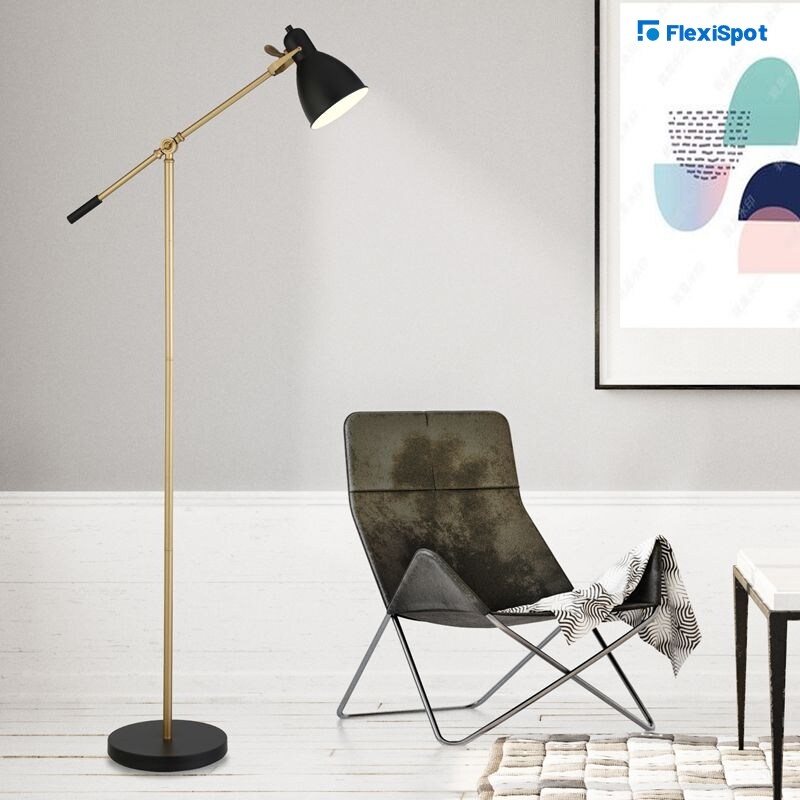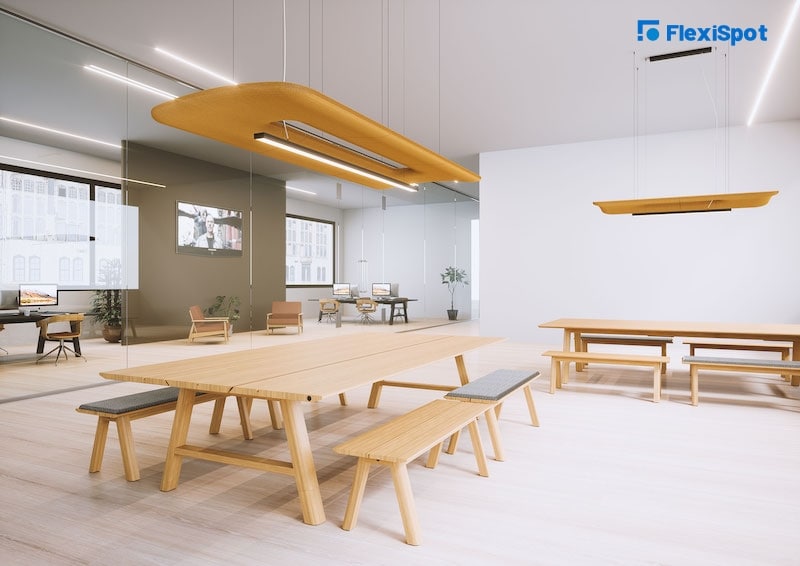Have you ever felt the need to turn on or turn off extra lights at work? If yes, it’s an indication that the lights in your office have a direct impact on you and your work. Had there been no impact of lighting on you, you wouldn’t have felt the need to increase or decrease the lighting. Right?
Not many employers give much importance to workplace lighting, especially if most employees work on their computers. The computer screens are already well-lit; why would an employee need extra light?
Well, what they don’t know is that poor workplace lighting affects the employee’s health and wellbeing and directly affects their productivity, morale, and efficiency.
You’ll be shocked, to say the least, when you find out what a massive impact workplace lighting can have on the aesthetics of your office and the morale and mood of your employees, and their productivity levels.
Workplace lighting is a powerful tool that you should try to use to your benefit. If you crack the code to harness the power of light in your workplace, you’re halfway through to a more productive and happier workforce.
How Can Poor Workplace Lighting Affect the Employees?
Before we can move on to how you can harness the power of light in your workplace, it’s essential first to understand how poor workplace lighting can affect the employees and overall office vibe.
Poor lighting in an office affects the physical wellbeing of the workers working there and has a direct impact on how they feel. It won’t be an exaggeration to say that workplace lighting has got both physical and psychological effects in the long run.

Poor Workplace Lighting Can Make Employees Feel Dull and Tired
If your workplace is poorly lit, it’ll look dull, boring, and depressing. How can you expect your employees to feel anything different? You’ll feel the vibe of the place you’re in. Have you ever noticed how happy children feel at McDonald’s? That’s because they like the vibe of the place!
In the same way, if your office appears dull and boring, your employees will feel the same. And if employees don’t feel happy and active at work, they won’t be able to deliver their best.
Poor office lighting can affect the morale and mood of your employees big time! The lighting in your office should make the employees feel active, fresh, and lively because that’s the mood you would want your employees to be in all day long!

Poor Workplace Lighting Can Affect Employee Health
If the lighting in your office is too dim, the employees will have difficulty reading documents. If the workers are involved in working at the machines, dim lights would mean there won’t be enough light for the employees to work. The workers will put excess stress on their eyes to see in poor light, which can result in severe headaches and migraines.
If the lighting in your office is too bright, it’ll shine right into the employees’ eyes and lead to excessive eye strain. Too much eye strain can cause headaches and fatigue. Prolonged exposure to bright light can also affect eyesight.
If your employees aren’t feeling their best, they won’t be able to deliver their best. If you make your employees work in poor lighting conditions for extended durations, it can lead to long-term complications like worsening eyesight and consistent headaches.
How to Harness the Power of Light in Your Workplace
If you want to improve the level of productivity in your employees, the first thing that you should be working on is improving the lighting in your workplace. You can transform the vibe of your office almost instantly by simply adding the right lights in the right places.
Let’s have a look at the various ways in which you can harness the power of light in your workplace to make your workplace a better place for your employees where they feel good!

Make Use of Natural Light as Much as You Can
According to research by Leesman, 56.7% of people say that the design of their workplace affects their productivity at work. Workplace lighting is an integral part of workplace design, and the quality of lighting can have a direct impact on employee productivity.
According to the same research conducted by Leesman, 75.8% of employees said that natural light was important to them, but only 56.9% of employees were satisfied with the natural light that their workplace received.
The point of stating these facts is that employees often miss out on the importance of natural light because they don’t really understand how it can affect them.
When the employees are working in an office where they’re confined indoors, an element of natural light can enhance their engagement, productivity, and wellbeing. Employees working in workplaces that have got large windows that allow them to enjoy views of the outdoors and work in natural daylight feel more positive and less stressed. When an employee is less stressed at work and feels good, they naturally perform better at work.
So, the first way to harness the power of light at work is to design your office to allow the inflow of natural light. The more the influx of natural light, the livelier your office will feel, and the more active your employees will be.

Allow the Workers to Control Lighting at Work
Poor lighting can have a direct impact on employee productivity. As we’ve already explained earlier, light that’s too bright or too dim can cause headaches and eye strain. When an employee is suffering from headaches at work, their focus will be diverted, and they’re more likely to make errors.
Dim lights make it hard to see, bright lights shine right into the eyes, and the incorrect placement of lights creates unpleasant shadows that make it hard for the employee to work to the best of their capabilities.
People working on different tasks need different levels of lighting. For example, employees who are working on their computers don’t need too much light, and overhead ceiling lights do the job quite well. However, employees who’ve got to study documents or work on machine parts that require their utmost focus require localized lighting.
One way to meet the lighting needs of all employees is to install lighting that employees can control. You can provide table or task lamps to employees who require good lighting on their work desks to study documents. You can install large overhead spotlights over machines so that the machines and all their parts are well-lit and the workers don’t find it hard to see through them.
You may wonder what is the use of floor lamps in an office. Well, floor lamps can be used to light up a particular spot in the office or enhance the lighting in a room.
The idea is to give lighting control to the employees. The employees can turn on or turn off the lights as per their requirements. They can reduce the brightness during the day and increase it during the evening. When the lighting is just right, the employees can focus on their work better, and with better focus comes better results!

Image Credit: Lightology
Install Acoustical Lighting
Did you know there were specialized lights that could control the acoustics? One of the biggest distracting factors for employees at work is the noise. If there’s too much noise in the background, an employee may not be able to focus at all, resulting in errors in their work.
If you really want a solution that can solve the workplace lighting problems and also address the issues of poor acoustics, acoustical lighting might be what you need.
These are specialized lights featuring specialized designs that are installed at specific spots in a workplace by professionals. They enhance the overall lighting quality and cut down the background noises, thereby helping employees focus on their work better.
Using the right combination of different types of lights in a workplace is essential. Sticking to any single type of lighting like ceiling lights wouldn’t make up for good workplace lighting. Lighting, as you know by now, is a powerful tool that has a significant impact on employee mood and productivity, and employers who crack the code of harnessing the power of this tool are all in for the wins!